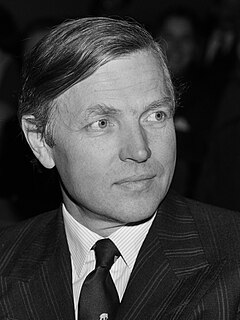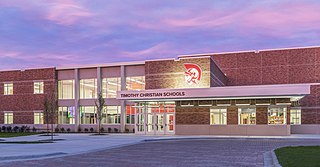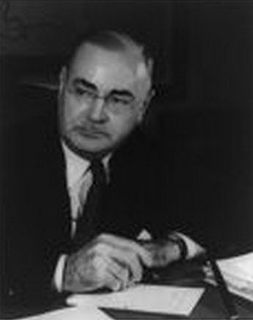Related Research Articles

Little Chute is a village in Outagamie County, Wisconsin, United States. The population was 10,449 at the 2010 census. It is immediately east of the city of Appleton and runs along the Fox River. The town was settled mainly by Catholic Dutch immigrants in the mid 19th century and today has a full-scale authentic working Dutch windmill which serves as a museum and tourist attraction. Prior to the European exploration it is likely the Mississippian culture tribe, the Oneota lived in the area. The Oneota are believed to be the ancestors of the Winnebago or Ho-chunk tribe. A historical marker near Little Chute commemorates the Treaty of the Cedars, a treaty which ceded 4 million acres of Native American land to the US government.

Holland is a city in the western region of the Lower Peninsula of the U.S. state of Michigan. It is situated near the eastern shore of Lake Michigan on Lake Macatawa, which is fed by the Macatawa River.

Vlissingen, historically known in English as Flushing, is a municipality and a city in the southwestern Netherlands on the former island of Walcheren. With its strategic location between the Scheldt river and the North Sea, Vlissingen has been an important harbour for centuries. It was granted city rights in 1315. In the 17th century Vlissingen was a main harbour for ships of the Dutch East India Company (VOC). It is also known as the birthplace of Admiral Michiel de Ruyter.

Philip Danforth Armour Sr. was an American meatpacking industrialist who founded the Chicago-based firm of Armour & Company. Born on an upstate New York farm, he made $8,000 in the California gold rush, 1852–56. He opened a wholesale soap business in Cincinnati, then moved it to Milwaukee. He made millions selling meat to the United States Army during the Civil War. In 1875, he moved his base to Chicago. Armour's innovations including bringing live hogs to the metropolis for slaughter, inventing an assembly line system for the dis-assembly of hogs, canning the product, economy of scale and efficiency in detail. He systematically utilized waste products, boasting that he made use of "everything but the squeal". The introduction of refrigerated rail cars opened a national market for him and competitors such as Gustavus Swift. Armour expanded into banking and speculation on the futures market for pork and wheat by 1900, his plants employed 15,000 workers; his own wealth was in the range of $50 million. The urgent Army need for meat during the Spanish–American War of 1898 led to highly publicized complaints about "embalmed beef." Armour retired from business in 1899, and devoted himself to philanthropy in the Chicago area, including low-cost housing for industrial workers, and the major institution of higher education, the Armour Institute of Technology.

The meat packing industry handles the slaughtering, processing, packaging, and distribution of meat from animals such as cattle, pigs, sheep and other livestock. Poultry is generally not included. This greater part of the entire meat industry is primarily focused on producing meat for human consumption, but it also yields a variety of by-products including hides, dried blood, protein meals such as meat & bone meal, and, through the process of rendering, fats.

Gustavus Franklin Swift, Sr. was an American business executive. He founded a meat-packing empire in the Midwest during the late 19th century, over which he presided until his death. He is credited with the development of the first practical ice-cooled railroad car, which allowed his company to ship dressed meats to all parts of the country and abroad, ushering in the "era of cheap beef." Swift pioneered the use of animal by-products for the manufacture of soap, glue, fertilizer, various types of sundries, and even medical products.

The Union Stock Yard & Transit Co., or The Yards, was the meatpacking district in Chicago for more than a century, starting in 1865. The district was operated by a group of railroad companies that acquired marshland and turned it into a centralized processing area. By the 1890s, the railroad capital behind the Union Stockyards was Vanderbilt money. The Union Stockyards operated in the New City community area for 106 years, helping Chicago become known as the "hog butcher for the world" and the center of the American meatpacking industry for decades.

Dutch Americans are Americans of Dutch descent whose ancestors came from the Netherlands in the recent or distant past. Dutch settlement in the Americas started in 1613 with New Amsterdam, which was exchanged with the English for Suriname at the Treaty of Breda (1667) and renamed New York City. The English split the Dutch colony of New Netherland into two pieces and named them New York and New Jersey. Further waves of immigration occurred in the 19th and 20th centuries.

JBS USA Holdings, Inc. is an American food processing company and a wholly owned subsidiary of the multinational company JBS S.A. The subsidiary was created when JBS entered the U.S. market in 2007 with its purchase of Swift & Company. JBS specializes in Wagyu Beef, the only certified Japanese Cattle distributor on the entire eastern U.S. seaboard

Paul Fentener van Vlissingen was a Dutch businessman and philanthropist. Ranked as the richest man in Scotland in 2005, he contributed to the development of game reserves in Africa and bought Letterewe estate in Scotland, where he pledged the right to roam, years ahead of the rest of the country.
Edward Morris was President of Morris & Company, one of the three main meat-packing companies in Chicago.

Timothy Christian Schools is a nondenominational, P-12th grade campus in Elmhurst, IL where Christ is at the center of everything that we do. Timothy is a college preparatory school rooted in Biblical values and truth. Recognized as a 2019 National Blue Ribbon School of Excellence, Timothy Christian High School has over 20 Advanced Placement™, Honors, and Dual Enrollment classes allowing students to earn college credit before graduating high school. From internships to opportunity-based clubs that give our students real-world experiences, Timothy combines challenging programs with traditional Biblical values.

Elmhurst Christian Reformed Church is a congregation of the Christian Reformed Church in North America located on the southern edge of Elmhurst, Illinois. It was founded in 1924 as a Baptist mission in Bellwood. The founder was a woman who had converted to Christianity after a difficult life in which she was won by her husband in a card game. After moving to Elmhurst in 1964, the congregation flourished and constructed a large new building just off of Roosevelt Road. It remains one of the largest congregations in the Christian Reformed denomination and runs many programs for children, students, adults, and seniors.
Ruth Morris Bakwin was a noted pediatrician and child psychologist and the first woman intern at the Fifth Avenue Hospital in New York City. Bakwin and her husband, also a pediatrician, were long associated with New York University School of Medicine.
John Herbert Van Deventer was an American engineer, inventor, trade journal editor, and writer on engineering, management, and accounting. In the field of accounting Van Deventer contributed to the theory of discounted cash flow. During World War I he served as editor-in-chief of the American Machinist.

Engineering Magazine was an American illustrated monthly magazine devoted to industrial progress, first published in 1891. The periodical was published under this title until October 1916. Sequentially from Nov. 1916 to 1927 it was published as Industrial Management.
John Robertson Dunlap was an American journalist, editor and publisher of engineering magazines and books. He is known as founder of the Engineering Magazine in 1891, which in the early 20th century became the "quality magazine in the field of business management."

John Michael Carmody was an American administrator, noted as editor of Factory and Industrial Management, and as administrator of the Rural Electrification Administration and the Federal Works Agency in the 1930s.

Van Vlissingen and Co., founded in 1879, are a privately held full-service commercial and industrial real estate developer, broker, asset and property manager.

Van Vlissingen en Dudok van Heel was a famous nineteenth-century Dutch machine factory. It built steam engines and machinery for the sugar industry and for maritime purposes, as well ships, rolling stock and large metal structures like the Moerdijk bridge and a floating dock. In 1871 it was reorganized to become the public company Koninklijke Fabriek van Stoom- en andere Werktuigen. In a second reorganization in 1890, parts of it were saved and continued under the name Koninklijke Nederlandsche Fabriek van Werktuigen en Spoorwegmaterieel, renamed to Werkspoor in 1927.
References
- 1 2 "Writer Arthur Van Vlissingen : Headed Bureau For Newsweek." in Chicago Tribune, October 22, 1986.
- ↑ Robert P. Swierenga (2002). Dutch Chicago: A History of the Hollanders in the Windy City. 2002, p. 652.
- ↑ Swierenga, Robert (2002). Dutch Chicago: A History of the Hollanders in the Windy City. Grand Rapids, Michigan: Wm. B. Eerdmans Publishing Co. p. 652. ISBN 0-8028-1311-9.
- ↑ Howard P. Segal (2008). Recasting the Machine Age: Henry Ford's Village Industries. p. 6
- ↑ Chandler, Alfred D. "The beginnings of "big business" in American industry." Business History Review 33.01 (1959): 1-31.